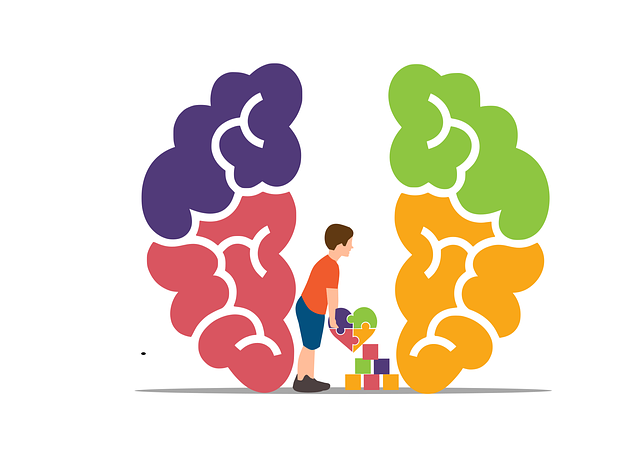Mental wellness is a holistic state of emotional, psychological, and social well-being, influenced by stress management practices like self-awareness exercises and communication strategies. Journaling, as a powerful tool for emotional awareness, helps individuals explore thoughts and feelings, fostering inner strength, resilience, and self-esteem improvement. Castle Rock Phobias Therapy incorporates journaling to safely confront intense irrational fears, track emotions, and develop tailored Mental Wellness Coaching Programs. Creative prompts and compassion cultivation enhance self-reflection, uncovering hidden insights and promoting self-care in managing phobias.
Mental wellness journaling is a powerful tool for navigating life’s challenges, cultivating emotional awareness, and fostering personal growth. This article guides you through understanding mental wellness and its profound impact on daily life, highlighting how journaling can serve as a transformative therapy companion. We delve into specific strategies, including exploring Castle Rock phobias and their coping mechanisms, and offer creative prompts to enhance self-reflection. Discover how incorporating journaling into your routine can revolutionize your mental wellness journey, especially within the context of Castle Rock phobia therapy.
- Understanding Mental Wellness and its Impact on Daily Life
- The Power of Journaling for Emotional Awareness
- Exploring Castle Rock Phobias: Symptoms and Coping Strategies
- Incorporating Journaling into Your Therapy Routine
- Creative Prompt Ideas for Enhancing Self-Reflection
Understanding Mental Wellness and its Impact on Daily Life

Mental wellness is a cornerstone of overall well-being, encompassing emotional, psychological, and social health. It influences our daily lives significantly, affecting how we think, feel, and act. Understanding mental wellness involves recognizing that it’s not merely the absence of mental illness but a state of flourishing where individuals can navigate life’s challenges with resilience and purpose.
In today’s fast-paced world, prioritizing mental wellness is essential for maintaining balance. Issues like anxiety, depression, and even phobias (as addressed by Castle Rock Phobias Therapy) can impact daily functioning. Self-awareness exercises and communication strategies play a pivotal role in managing these challenges. By cultivating self-awareness, individuals can better understand their thoughts, emotions, and behaviors, laying the foundation for positive change and improved mental wellness.
The Power of Journaling for Emotional Awareness

Journaling is a powerful tool for emotional awareness and mental wellness, as it allows individuals to explore their thoughts and feelings in a safe and private space. By putting pen to paper, or fingers to keyboard, one can gain valuable insights into their emotional landscape. This practice enables people to identify patterns, triggers, and root causes of their emotions, which is particularly beneficial for those dealing with issues like Castle Rock phobias. Through regular reflection, individuals can develop a deeper understanding of themselves, fostering inner strength and resilience.
The act of journaling encourages self-reflection and introspection, helping to clarify thoughts and promote emotional intelligence. It provides an opportunity to process experiences, work through traumas, and even celebrate achievements. Moreover, engaging in this practice can enhance self-esteem improvement and overall well-being by empowering individuals to take control of their mental health. Much like the production process of a Mental Wellness Podcast Series, journaling is an intimate and personal journey that can lead to profound self-discovery.
Exploring Castle Rock Phobias: Symptoms and Coping Strategies

Castle Rock Phobias, a specific type of anxiety disorder, manifest as intense, irrational fears centered around objects or situations that pose little to no actual danger. Individuals experiencing these phobias often display distinct symptoms such as panic attacks, rapid heartbeat, sweating, and feelings of dread when confronted with their trigger. Journaling can be an effective tool in Castle Rock Phobias therapy, offering a safe space for individuals to explore and confront their fears. By meticulously documenting their experiences, emotions, and physical sensations, they can gain valuable insights into the patterns and triggers associated with their phobias.
This introspective practice facilitates self-awareness and empowers individuals to develop coping strategies. Mental wellness journaling encourages the identification of cognitive distortions and promotes healthier thought processes. Moreover, it aids in risk management planning for mental health professionals by providing a comprehensive record of an individual’s progress, enabling them to tailor treatment approaches effectively. Through consistent journaling, one can gradually build confidence in managing their phobias and reduce the societal stigma surrounding mental illness.
Incorporating Journaling into Your Therapy Routine

Incorporating journaling into your therapy routine can be a powerful tool for self-reflection and personal growth, especially when guided by experienced professionals like those at Castle Rock Phobias Therapy. Journaling provides a safe space to explore thoughts and emotions, which is essential for developing coping skills and enhancing mental wellness. Through regular practice, you can gain deeper insights into your feelings, track progress over time, and identify patterns that contribute to stress or anxiety.
Effective communication strategies are often fostered through journaling, allowing individuals to articulate their experiences and work collaboratively with therapists on tailored Mental Wellness Coaching Programs Development. By documenting thoughts and reactions, clients can better understand triggers and develop effective coping mechanisms, ultimately improving overall mental health and well-being.
Creative Prompt Ideas for Enhancing Self-Reflection

Incorporate creative prompts into your journaling practice to spark deeper self-reflection and uncover hidden insights. Consider writing from the perspective of a character in a story, imagining how they would describe their emotions and experiences. This can help externalize your feelings, making it easier to identify and process them. For instance, “If my fear was a creature, what kind of animal would it be? Where does it lurk in my mind?” prompts you to personify phobias or anxious thoughts, often leading to revealing metaphors and new perspectives.
Another idea is to create mood boards or visual journals, collaging images, quotes, and colors that represent different emotional states. This tactile approach encourages emotional regulation as you consciously choose items that resonate with your current feelings. Incorporating practices like compassion cultivation—such as writing kind wishes for yourself and others—into your journaling routine can also foster self-care routine development for better mental health. These prompts not only enhance self-awareness but also cultivate a more compassionate relationship with yourself, which is a key aspect of Castle Rock phobias therapy.
Mental wellness journaling is a powerful tool that can significantly enhance emotional awareness and support Castle Rock phobias therapy. By exploring your thoughts and feelings through creative prompts, you can gain valuable insights, foster self-reflection, and ultimately promote healing. Incorporating this practice into your routine encourages a deeper understanding of your mental state, enabling you to navigate life’s challenges with increased resilience. Remember, the journey to better mental wellness is personal, and journaling provides a safe space to explore and express yourself, making it an invaluable asset on your path to self-improvement.













